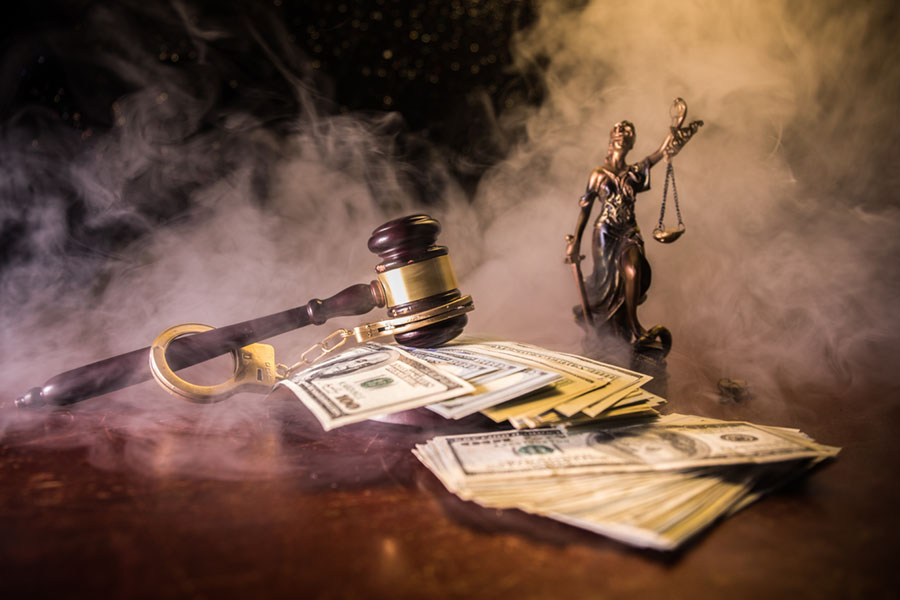
Who Benefits from the Civil Asset Forfeiture Laws? The Civil Asset Forfeiture Laws Benefit Government Budgets
The Civil Asset Forfeiture Laws Benefit Government Budgets.
Criminal Forfeiture Laws make a great deal of sense in the direct relationship between a crime and the seizing of property associated with that crime.
Civil Asset Forfeiture Laws, however, when reading how the law is applied, might give you the sense you have joined Alice on the other side of the looking glass.
The underlying premise that crime should pay; particularly, payment to the victims, is great in theory but ridiculous in its implementation. Unlike forfeiture as a part of criminal proceedings, these civil laws proceed against property, not a person.
Without delving too deeply into the legalese of this process, it is also generally true that a person’s innocence is no argument; guilty until proven innocent.
There is no doubt that constitutions around the world have anomalies and contradictions embedded in their fabric but to contradict the first point of law in its enforcement makes a mockery.
The history of asset forfeiture starts around 1984, with the major war being fought by law enforcement on the drug trade. A great weapon that it proved to be, it naturally assumed more responsibility with deterring other crimes as the statutes were extended, including the creation of the Civil Asset Forfeiture Laws.
Umbrella of Corruption
More dangerous crimes came under the forfeitures umbrella, until even driving under the influence was part of the broad range of crimes where asset forfeiture was used as a deterrent and punishment.
The rot had clearly started to set in when, as the story is told, just a tip supplied by an informant, who stood to gain up to 25% of the proceeds, instigated forfeiture of assets.
When we reach a position where simply the carrying of “too much cash” becomes the basis or motivation to seize assets, then there is something very awry.
Is it a premise of shoot first and ask questions later? If law enforcement has come to that, then it has taken a step backwards.
Contributions to the Government
Figures of 80% are mooted as are the quantity of seized or forfeited goods that are taken from people who have never been charged with a crime. However, their goods are still in the hands of the government or already sold and gone forever.
To quote the treasury department on the Civil Asset Forfeiture Laws, most property is seized due to smuggling, drug trafficking, money laundering, credit card fraud, food stamp fraud, mail fraud or other illegal activity.
Clearly, as a good citizen, you will want most of these crimes ‘paid for’. They’re not socially responsible or acceptable, but it’s the last category that is difficult; ’other illegal activity’.
The Double Standard
Let the punishment fit the crime, but is there a crime? As a political activist in the land of free speech, attending a rally can turn into a ‘crime’ opportunity to contribute all your goods to the government.
In other words, perpetrate a perceived crime against the government, and the government can take away your goods.
Hey, America has gone into foreign countries to protect the other country’s citizens against practices like that! Every state-constituted, law enforcement instrument is open to corruption, and the Civil Asset Forfeiture Laws are no exception.
In fact, in a country whose whole ethos is based in freedom of the individual, this set of laws has become draconian.
What makes it worse is that it is suggested that law enforcement is more and more dependent on asset seizure as a means of financing their operations.
Fertile ground for corruption, indeed. Is it still “the land of the free and the home of the brave?”

 My First Amazing Ayahuasca Experience
My First Amazing Ayahuasca Experience  Pine Needle Tea
Pine Needle Tea  The REAL Controllers of Humanity: The Papal Bloodlines
The REAL Controllers of Humanity: The Papal Bloodlines  Is it Global Warming or Cooling?
Is it Global Warming or Cooling?  Gun Rights and Obama Examined
Gun Rights and Obama Examined